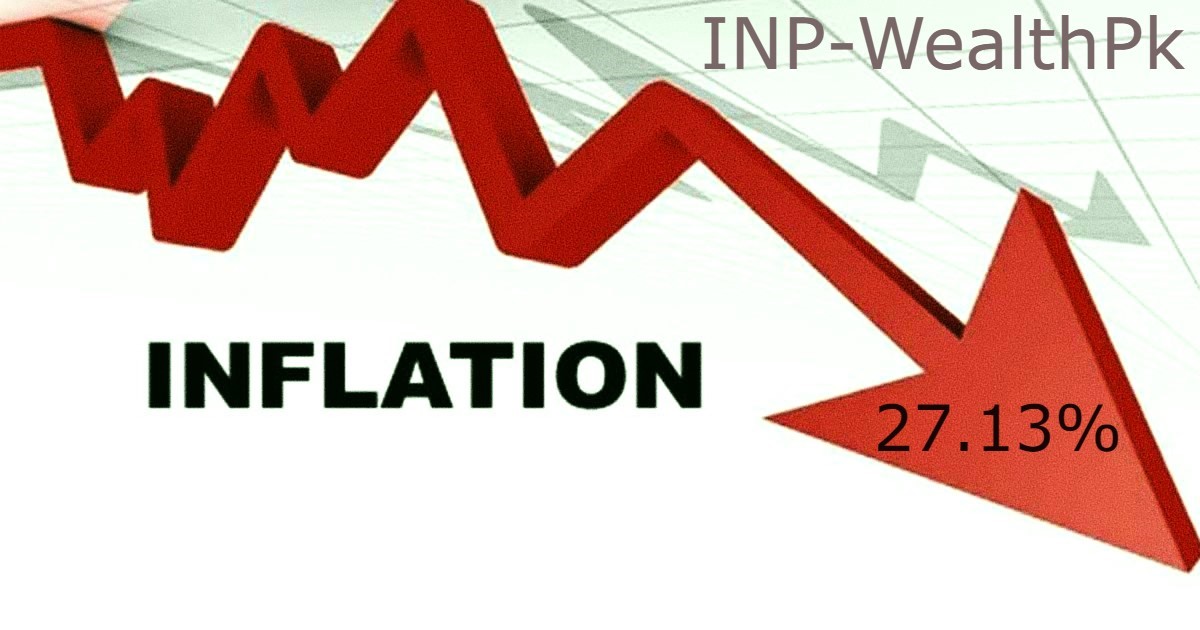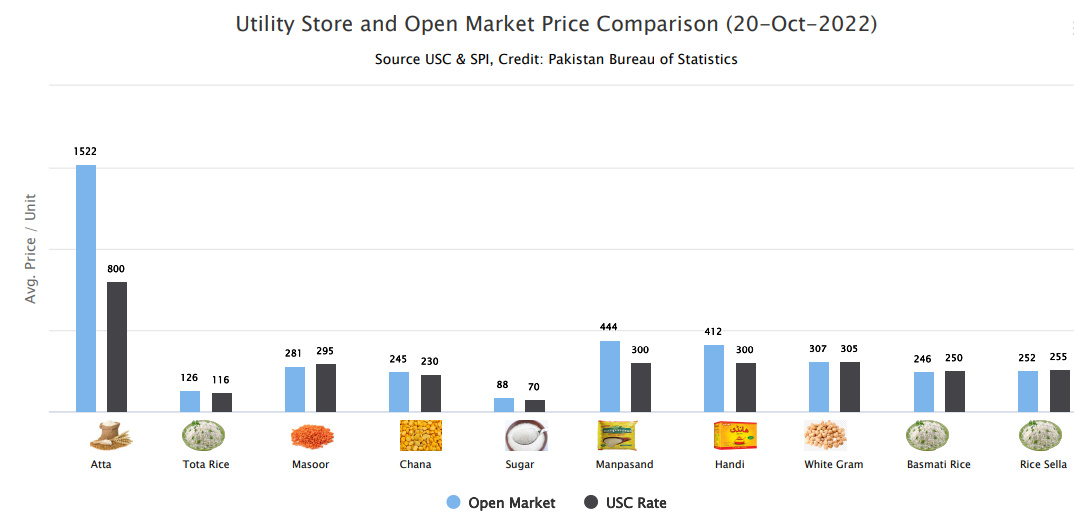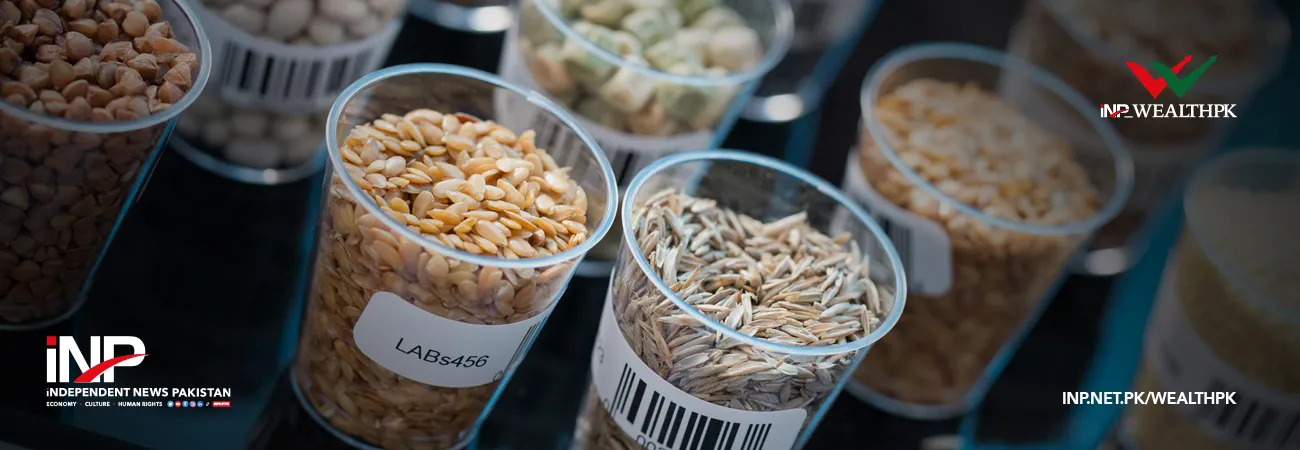INP-WealthPk
By Irfan Ahmed
The sensitive price indicator (SPI) based inflation for the week ending October 20 witnessed an increase of 27.13% compared to last year (21st October 2021), reports WealthPK.
Inflation in the preceding week was measured at 28.44% on a year-on-year (YoY) basis, as prices of vegetables surged following the damage caused by the floods. On a week-on-week (WoW) basis, inflation surged by 0.35%, mainly due to the high prices of perishable food items.
It is projected that the CPI-based inflation will rise to 19.9% in the fiscal year 2022-23, up from 12.1% in the fiscal year 2021-22, according to the International Monetary Fund (IMF).

According to Pakistan Bureau of Statistics (PBS), increase was observed in the prices of onions (170.15%), tomatoes (113.23%), pulse gram (68.02%), pulse masoor (56.88%), cooking oil 5 litre (56.31%), pulse moong (53.66%), vegetable ghee 2.5kg (53.29%), mustard oil (53.19%), pulse mash (52.72%), vegetable ghee 1kg (49.94%), diesel (74.51%), petrol (62.75%), washing soap (55.36%), and gents sponge chappal (52.21%).

On the other hand, a major decrease was observed in the prices of electricity (45.61%), chillies powder (41.85%), sugar (12.99%) and gur (2.66%).
![]()
According to the PBS, the combined index increased to 205.27 points on October 20, compared to 204.55 points on October 13, while the index was recorded at 161.46 points on October 21.
The SPI monitors the prices of 51 essential items based on a survey of 50 markets in 17 cities of the country. During the week under review, out of 51 items, prices of 23 (45.10%) items increased, 14 (27.45%) items decreased and 14 (27.45%) items remained stable. Salt powder was one of the key commodities that increased the weekly inflation, with prices increasing 4.84% on a WoW basis.
Meanwhile, compared to the previous week, the SPI for the combined consumption group in the week under review witnessed a slight increase of 0.35%. Food commodities that saw a major increase in prices included bananas (3.79%), tomatoes (2.63%), powdered milk (2.22%), tea Lipton (1.24%), milk fresh (1.23%), cooked beef (1.21%) and rice irri-6/9 (1.02), while non-food items with increased prices included long cloth (2.21%), georgette (1.90%), firewood (1.57%) and shirting (1.33%). On the other hand, decrease was observed in the prices of pulse masoor (3.63%), chicken (3.49%), wheat flour (1.95%), potatoes (1.88%), pulse mash (1.74%), pulse moong (1.13%) and LPG (0.45%).
Alternatively, the prices of 14 items remained stable including bread plain (small size) mutton (average quality), gur (average quality), gents sandal Bata, gents sponge chappal Bata, ladies sandal Bata pair, electricity, gas charges up to 3.3719 mmbtu, energy saver Philips 14-watt, Sufi washing soap 250gm cake, petrol super, hi-speed diesel, match box, and telephone call charges.
The SPI for the lowest consumption group up to Rs17,732 observed an increase of 0.35% and went up to 210.78 points this week from 210.05 points last week. On yearly basis, analysis of the SPI change across different income segments showed that the SPI increased across all quintiles ranging between 22.65% and 32.58%.
Yearly inflation for the group with a monthly income from Rs29,518 to Rs44,175 (Q4) increased by 28.48%, while the highest income group with a monthly income above Rs44,175 recorded an increase of 32.58%. In the meantime, weekly inflation for the group with a monthly income from Rs22,889 to 29,517 (Q3) increased by 0.37%.
In addition, there is a mild price difference between the prices of utility stores and the open market (October 20). The Utility Stores’ prices are comparatively lesser than the open market. The Utility Stores Corporation (USC) is giving a special subsidy to consumers on pulses, flour, sugar, rice, and ghee under the government’s relief package.

Source: Pakistan Bureau of Statistics
Credit : Independent News Pakistan-WealthPk













